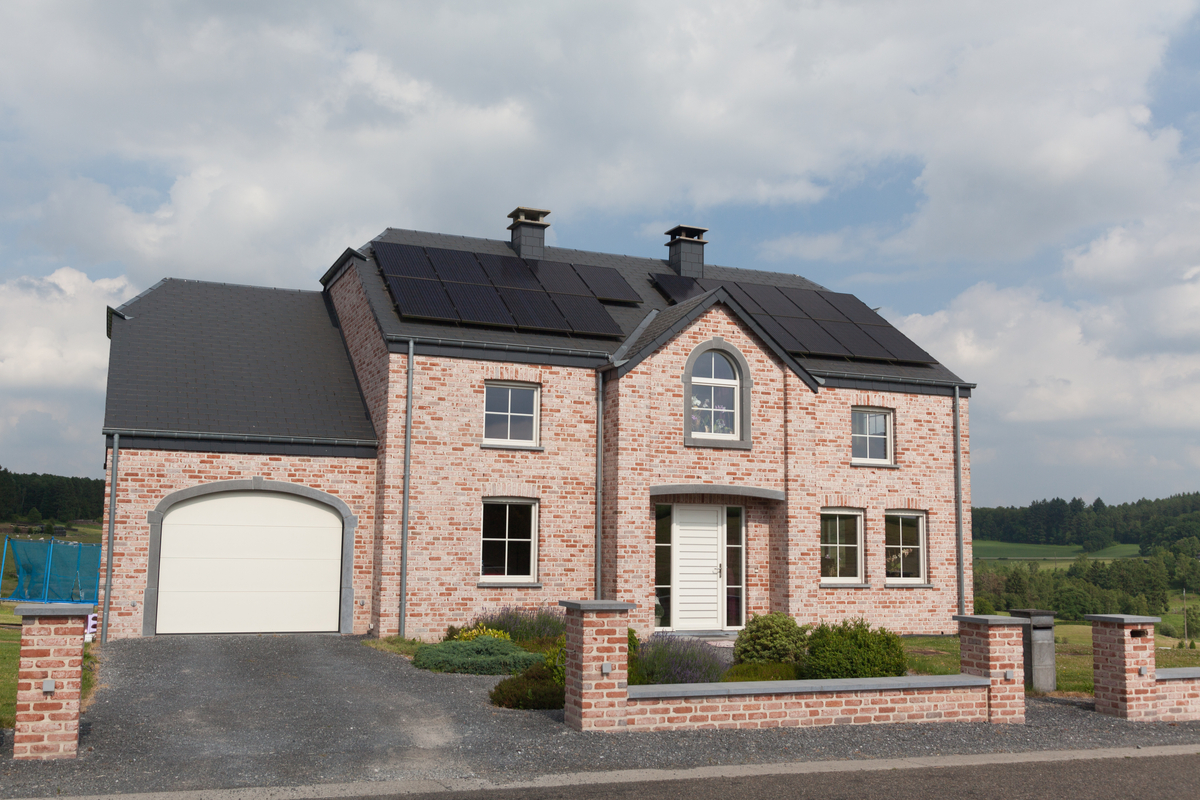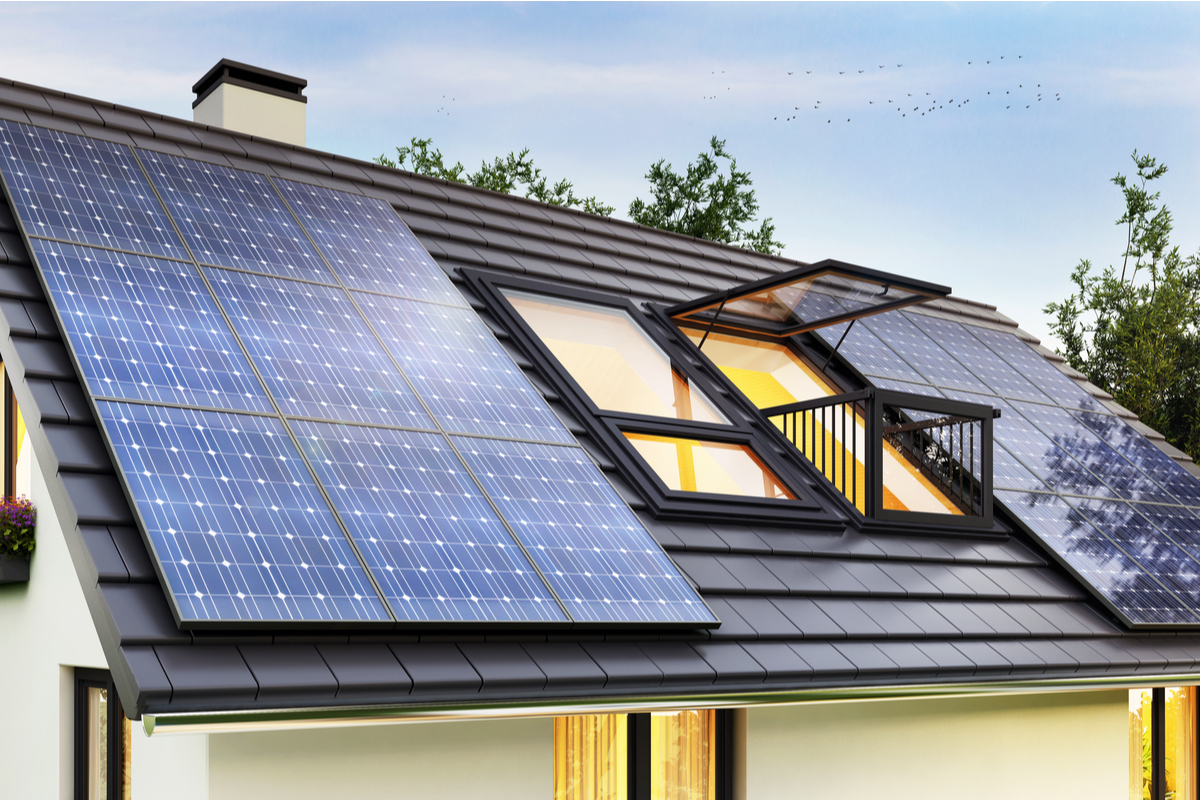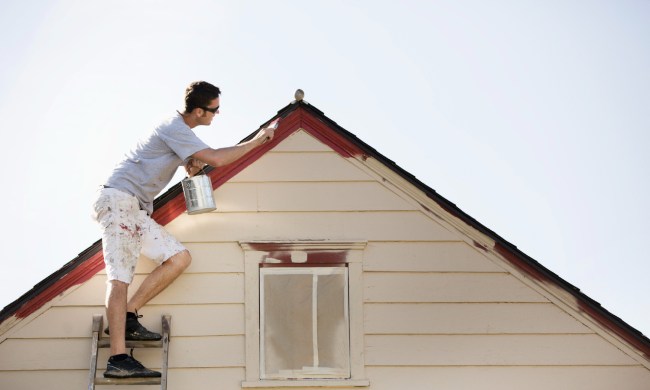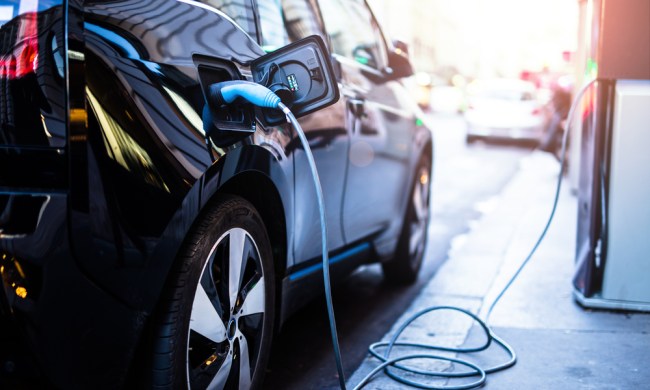Interest in green living has caused eco-friendly features in homes to rise in recent years. Upgrades like energy efficient appliances and EV charger installations are becoming more popular, and solar energy panels are the next big push in green homes. But do solar panels have any other benefits, like increasing your home’s value? We’ve got all the details.

Do solar panels increase the value of your home?
Renovations to your home are a great way to increase its value. Certain upgrades, like remodeled bathrooms, kitchens, and basements, increase property value more than other renovations. To determine whether installing solar energy features in your home will boost its value, it’s important to understand what your home’s value means.
In simple terms, the value of a house is the amount of money a prospective buyer is willing to pay for it. A home’s estimated value is based on several factors, all of which make the home more enticing to buyers and cause them to pay a premium for purchasing it. These factors include location, size, and features that a large percentage of buyers are looking for in their new home.
Zillow’s Senior Economist, Sarah Mikhitarian, referenced the growing concern for climate issues and other environmental dangers in the housing market. “There is increased demand for green living,” she told CNBC. “More than 80% of buyers now say energy-efficient features are important in selecting their home.”
Solar panels, among other green home upgrades, have become a sought-after feature in many housing markets around the country, which means that it’s a feature that will increase your home’s value.
How much do solar panels increase a home’s value?
According to Zillow, homes with solar panels sold between 2018 and 2019 across the country sold at an average premium of 4.1% higher than other homes.
While solar energy features in your home will increase its value regardless of where you live, some states see much higher premiums paid on homes with solar panels. Between March of 2018 and February of 2019, the states with the highest premiums for homes sold with solar energy were:
- New Jersey: Homes with solar panels sold at 9.9% higher than homes without.
- Pennsylvania: Homes with solar panels sold at 4.9% higher than homes without.
- Louisiana: Homes with solar panels sold at 4.9% higher than homes without.
- North Carolina: Homes with solar panels sold at 4.8% higher than homes without.
- Washington: Homes with solar panels sold at 4.1% higher than homes without.
Certain larger cities also see higher premiums for solar energy homes. For example, San Francisco homes with solar energy sold at a 4.4% premium. Orlando has seen homes with solar panels sell for 4.6% more than homes without them.

Other benefits of solar energy in your home
Aside from the increased property value that comes along with switching to solar power in your home, there are other benefits, both financial and convenient, to installing solar panels.
Lower energy costs
Due to the constantly rising cost of electricity, solar energy has proven to save homeowners roughly $1,500 on average every year in energy costs.
Low-maintenance
While furnaces, boilers, and air conditioners have lots of moving parts that require annual or even monthly maintenance, solar panels need virtually no repairs or upkeep for decades. This saves homeowners both time and money in maintenance costs.
Tax exemptions
Solar panels come with a high up-front cost that hinders many homeowners from taking the leap into solar energy. Additionally, since a home’s value is increased with the switch to solar, higher property taxes are a concern. The good news is, federal tax credits of up to 26% of the installation cost for solar panels help to offset both cost and taxes.
Switching to solar energy is a big leap for any homeowner and certainly requires some deliberation and budgeting. However, the increased property value, combined with the monthly and annual savings that solar panels bring, make the change a wise one not only for the environment but also for the bank account.



